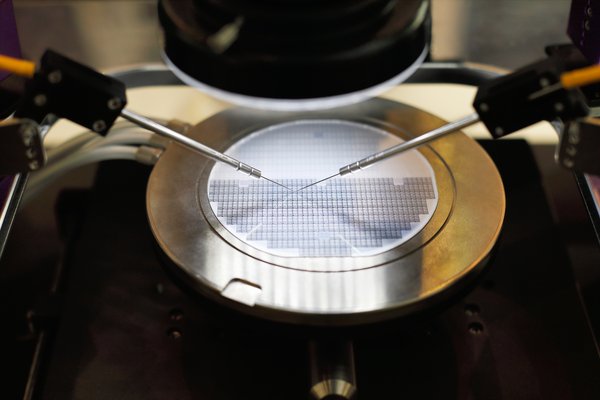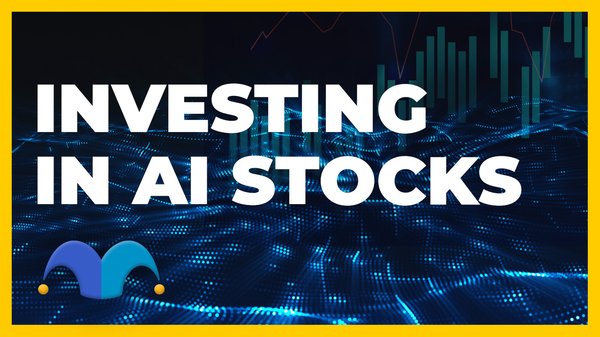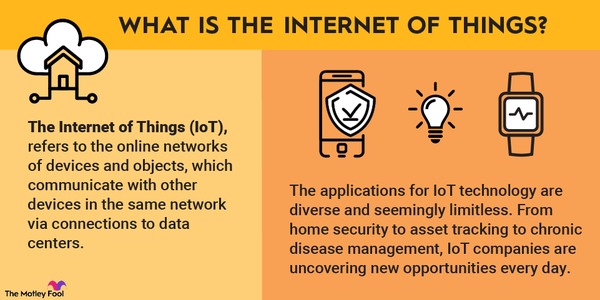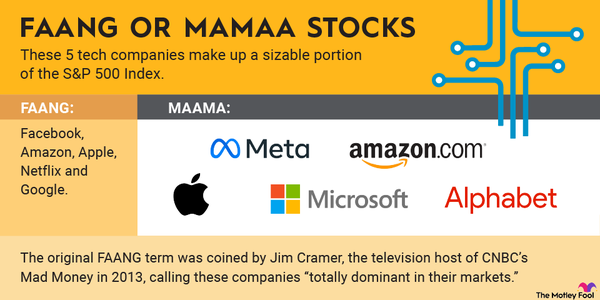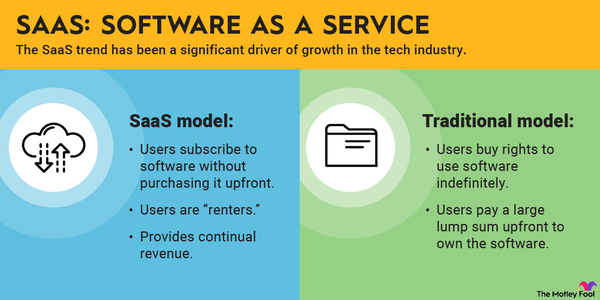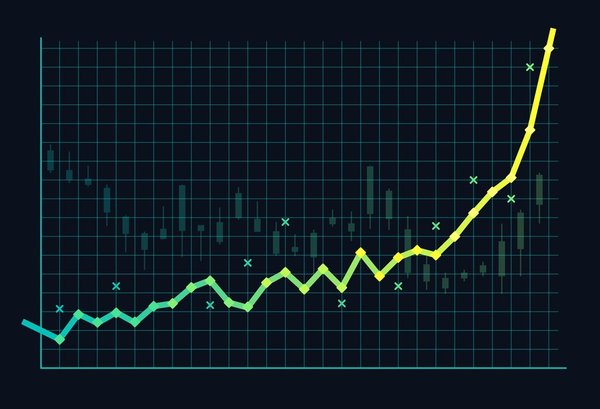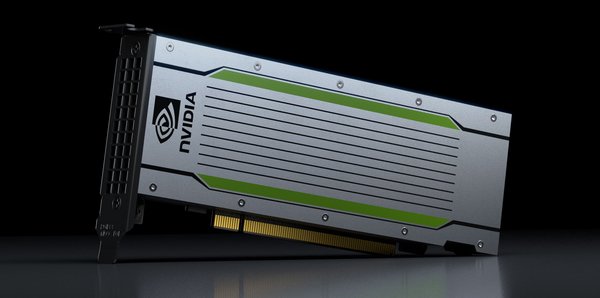Robots have captivated our imaginations since the invention of modern robotics in the 1950s. The idea of lifelike machines performing human tasks is intriguing for some and an uneasy thought for others.
But like most technology, robotics isn't about replacing humans. Rather robots automate redundant tasks to free up our time for more meaningful activities. Breakthroughs in recent years, like the advent of generative artificial intelligence (AI) services such as ChatGPT, have spurred the adoption of automation processes within organizations.
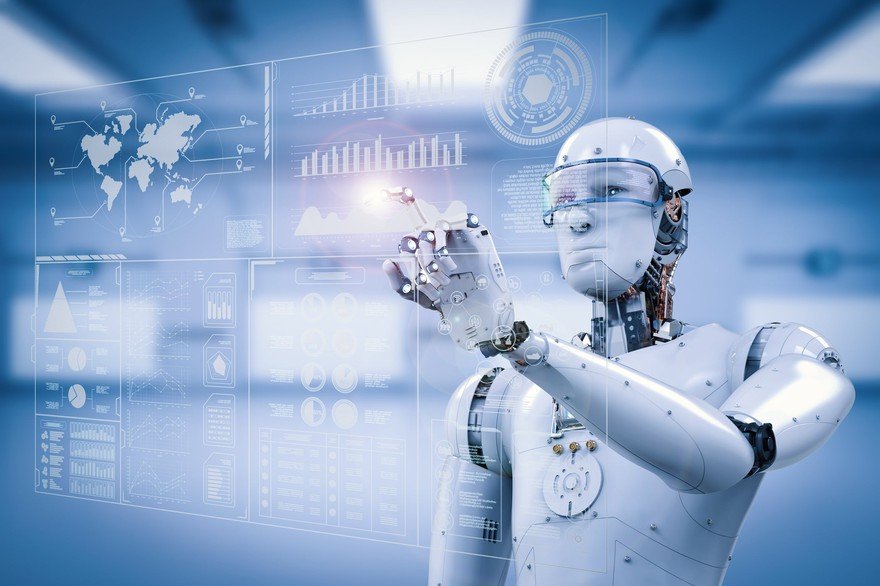
Some estimates point to an acceleration in the global adoption of robotics. Spending could double from 2020 to 2025 and reach almost $210 billion worldwide. Investing in robotics company stocks could be a lucrative move in the years ahead.
Investing in the best robotics stocks in 2024
Investing in the best robotics stocks in 2024
We already benefit from robotic processes every day. E-commerce companies, such as Amazon (AMZN -1.64%) and Shopify (SHOP -2.37%), automate tasks in fulfillment warehouses using intelligent machines. Smart speakers and other Internet of Things (IoT) devices in our homes play music and inform us of our daily schedules. Chatbots help us find the information we need on websites.
Other robot applications are a little less visible, though. Here are eight robotics stocks to consider investing in.
| Company | Market Cap | Description |
|---|---|---|
| Nvidia (NASDAQ:NVDA) | $1.28 trillion | Advanced semiconductor design leader with a massive lead in artificial intelligence |
| Intuitive Surgical (NASDAQ:ISRG) | $115.8 billion | The pioneer of robotic-assisted surgery |
| ABB (OTC:ABBNY) | $79.25 billion | Large European industrialist and maker of robots and robotic equipment |
| Rockwell Automation (NYSE:ROK) | $35.1 billion | A leader in industrial automation for auto manufacturing, food and beverage production, and more |
| Zebra Technologies (NASDAQ:ZBRA) | $13.7 billion | Developer of mobile devices that help employees work smarter and more efficiently |
| Teradyne (NASDAQ:TER) | $16.13 billion | Provider of industrial equipment that automates repetitive device-testing tasks |
| PTC (NASDAQ:PTC) | $20.20 billion | Manufacturing and industrial software tech partner that helps businesses connect people with machines |
| UiPath (NYSE:PATH) | $13 billion | Developer of software-based robots for enterprise use |
1. Nvidia
1. Nvidia
Semiconductors are the basic building blocks of all technology. Nvidia has risen to become a leader in this area, and its advanced circuitry designs are enabling all sorts of high-end computing processes -- robots included.
Nvidia's GPUs (graphics processing units) are accelerating how quickly computing units can crunch data, especially in data centers. However, Nvidia chips also power everything from personal computers to small IoT devices to robotics in factories. For a complex system such as a robot, fast computing time is a necessity.
One example of Nvidia's work is embodied in its aptly named "Jetson" lineup of modules. Complete with AI and machine learning software, Jetson devices are being used in applications spanning industrial and manufacturing machinery, healthcare devices, and self-driving vehicles (like the Orin and upcoming Thor driver-assist and self-driving car processor chips).
With its advanced capabilities on the hardware and software fronts, Nvidia is a top play on robotics for the long term as it helps its customers unlock AI's power.
Semiconductor
2. Intuitive Surgical
2. Intuitive Surgical
Intuitive Surgical is a pioneer of robotic-assisted surgery. Its da Vinci system made its commercial debut in 2000 and has since expanded across the globe. Intuitive Surgical's robots help surgeons and their teams execute more precise procedures, greatly improving patient outcomes and recovery times.
More than two decades later, Intuitive Surgical is still in growth mode. The vast majority of surgeries performed every day are done without robotic assistance, so there's no shortage of opportunities to develop new da Vinci capabilities (as well as new robotic surgery devices, like the Ion) to address more procedures. And once one of Intuitive's systems is installed, the business model generates ongoing revenue from disposable instrument sales, services, and support.
This applied use of robotics technology and an ongoing revenue stream once a da Vinci robot is installed make Intuitive Surgical one of the best long-term bets in healthcare technology.
3. ABB
3. ABB
ABB is one of Europe's largest industrial conglomerates and a top global provider of industrial equipment. From next-gen energy infrastructure -- like electric vehicle (EV) charging stations -- to manufacturing measurement tools to metallurgical equipment, ABB is there. Included in its portfolio are robots.
Chief among ABB's products in this department are robotic arms and controllers. These are used to automate various tasks in manufacturing all sorts of products, from cars to pharmaceuticals. ABB also provides software that helps its customers manage these robots, continuously improve their automated operations, and even view their robotic army in action with augmented reality (AR) visualization tools.
4. Rockwell Automation
4. Rockwell Automation
Rockwell Automation is a leader in industrial-grade technology. Its systems, components, and software help manufacturers develop smarter and more efficient machines. Rockwell's services and equipment address a wide swath of the economy, such as energy and chemical producers, food and beverage companies, and automakers.
The industries Rockwell helps have been around for a long time and aren't secular growth stories anymore. However, Rockwell is a leader in highly profitable robotics and related IT services.
As a result, the company has increased its profitability (as measured by free cash flow) at a steady pace over the past decade. As its manufacturing partners look for new ways to increase productivity, Rockwell could continue to benefit -- and reward shareholders with a rising dividend and share repurchases.
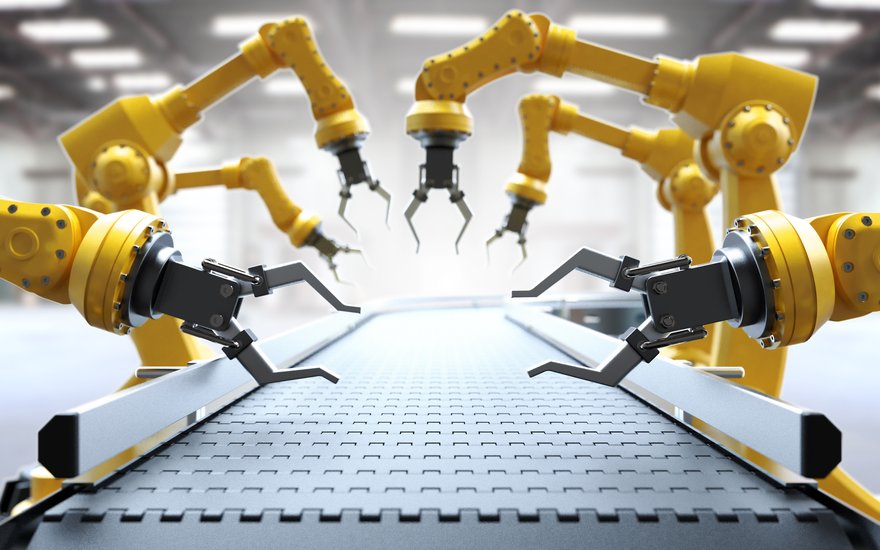
5. Zebra Technologies
5. Zebra Technologies
Zebra Technologies is a longtime player in the automation space. The firm develops mobile computing devices to help employees work more efficiently. Retail and warehousing, healthcare, and banking are just a few of the places Zebra's robotic-enhanced computers help workers organize and automate their workflows.
The company makes a wide array of products. Custom handheld devices designed for the workplace deliver pertinent data. Barcode scanners equipped with machine vision and AI help automate work processes. Interactive kiosks streamline customer experiences in stores.
Although Zebra has been around for many years, it has been an enduring growth story. Sales and profitability continue to run higher as the company's partners in many sectors of the economy turn to Zebra for robotics-powered solutions for their workforces.
Machine Learning
6. Teradyne
6. Teradyne
Teradyne is a developer of industrial equipment that helps automate repetitive tasks, specifically for the semiconductor industry. In manufacturing electronic devices, testing the products to ensure they work correctly is one of the most repetitive and time-intensive tasks.
Teradyne's robotics help free people from this activity, speed up testing and verification times, and increase the accuracy of device testing before a product is delivered.
This robotics company is also a top partner of automotive, aerospace, and defense companies. It owns Universal Robots and Mobile Industrial Robots (MiR), two businesses it acquired in recent years. Universal Robots is known for devices like robotic arms used in manufacturing, and MiR for its self-driving bots used in warehouses.
Although it's a behind-the-scenes play on automation, all sorts of everyday devices, mission-critical machinery, and tech services (such as 5G mobile networks) benefit from Teradyne's work. The company is constantly improving its robotic equipment and is a top name in industrial automation technology.
7. PTC
7. PTC
PTC is another business operating out of the general public's view. The company has developed an augmented reality and industrial IoT platform, as well as computer-aided design software that integrates with equipment to help manufacturers become more efficient and access the power of the digital economy.
PTC itself doesn't design robots, but its software products help connect and coordinate machines and people within an organization. This technology helps customers unlock the full potential of robotics, extending the capabilities of humans on the job and freeing up their time to handle more complex activities. Addressing wide-ranging manufacturing and production throughout the economy, PTC deserves a spot for those building robotics investment portfolios.

8. UiPath
8. UiPath
Not all robots are real-life machines. Many dwell in the virtual world, where they execute tasks on computers and within cloud computing systems. A leader in robotic process automation (RPA), UiPath builds and supports software bots that can be trained to handle virtual tasks and act as virtual assistants to the human workforce.
Although they may not be physical machines, UiPath's robots are incredibly efficient when set loose on typical office tasks, such as data collection and form entry, compliance, and customer relationship management. UiPath cites a study from researcher McKinsey that says some 60% of manufacturing activities, 43% of financial services and banking processes, and 36% of healthcare tasks can be automated with software.
UiPath is at the forefront of automation with its virtual bots. Some might fear that RPA could replace jobs, but with many organizations grappling with employee shortages and inflation in the wake of the COVID-19 pandemic, this software firm is a top play on applied robotics.
Related investing topics
Invest in robotics for the long term
Invest in robotics for the long term
Thanks to semiconductor and software innovation in recent years, robots are being applied throughout the global economy at a record pace. As the technology improves, it will transform the way organizations operate and make the world a more efficient place.
Bear in mind that robotics is a long-term trend, and investing in stocks in this space will require patience. But potential investment gains could be sizable for those companies making the best use of robotics technology.








